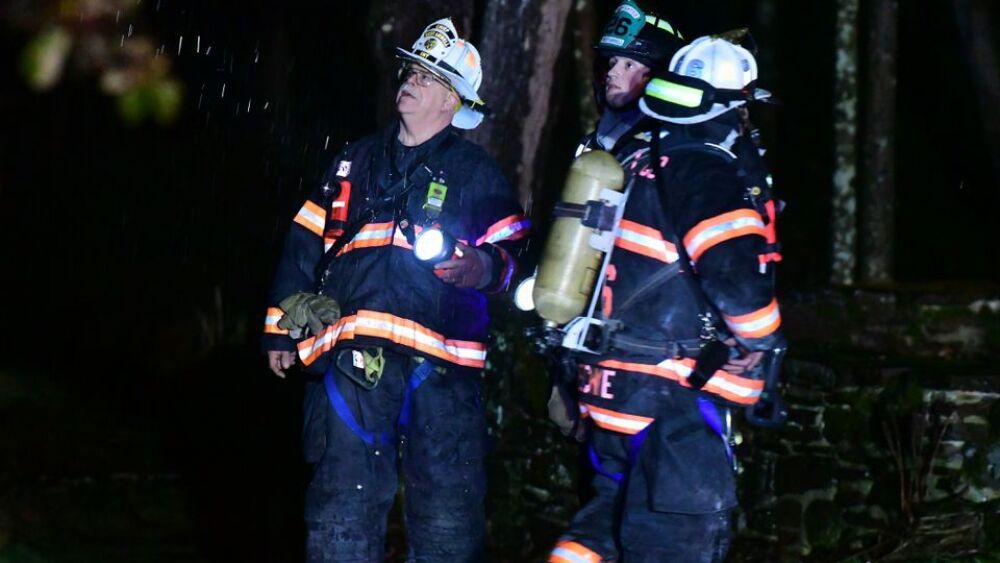Strong leadership is an essential element for a fire service organization to thrive and remain successful. However, most firefighters at some point in their career will find themselves working in a system with poor leadership, whether due to an individual or a systemic problem.
While poor leadership should never be excused or ignored, there are times when firefighters will simply have to figure out how to operate under a flawed leader – and such experiences can provide valuable opportunities for growth and skill development.
Let’s review some ways firefighters can make the most of a bad situation and learn from poor leadership.
3 leadership traits that can damage the department
There are many different types of leaders with a variety of leadership styles, but not every leadership style will positively influence a fire service organization.
There are three main reasons why some leaders display leadership traits that damage an organization, per Chamorro-Premuzic.
First, these leaders cannot differentiate between competence and confidence. In other words, they cannot distinguish between their assessment of their competence and the way others view them. These leaders believe they are efficient and intelligent leaders because they are confident in their decision-making abilities. For more on this phenomenon, review the Dunning-Kruger effect.
Second, a leader whose perceptions of their talents surpass their actual talents can also have a negative effect on a department. These leaders perceive themselves as popular, but in reality, they’re well-known for all the wrong reasons. If these leaders are not dealt with, they may think they are untouchable. The most effective leaders ascribe to a shared vision, and sometimes might be seen as lacking charisma because they don’t seek attention or aren’t constantly in the news.
Third, some leaders suffer from an inability to resist narcissistic visions that do not fit into the organization’s vision. Successful fire chiefs and fire service leaders like to create visions of the future that fit into the public’s vision. A great example of this is a community seeing the value of strategic community risk reduction (CRR). This value-added benefit is a direct reflection of an organization’s desire to preserve relevance to the community.
Let’s now shift to the opportunities for growth and skill development that can emerge as a result of poor leadership.
Teamwork: United in opposition
Teamwork is crucial for any fire department to function effectively. Teamwork encourages unity in a business, enabling development of different viewpoints and opinions. Teamwork leads to improved productivity, greater learning opportunities, and synergy in the workplace. Teamwork in the fire service is no different.
Ineffective leaders may discourage teamwork, especially if they are dictatorial or feel threatened by peripheral success stories. The reasoning: They might want to gain power and control by ensuring that nobody works together. Other officers and the line personnel may be opposed to this dictatorial approach, which can actually create a greater sense of unity in the workplace and ultimately have the opposite effect than the leader intended, even if a subconscious intent.
Coping mechanisms: Stress and pressure in the workplace
Negative leadership can have a tremendous impact on organizational culture. Fire service leaders sometimes exhibit a lack of care and interest in employees, meaning that they are only interested in completing the work. Stress and pressure can cause serious health problems, decrease energy levels, cause personal problems with colleagues, affect personal relationships and damage a person’s well-being. Stress resulting from poor leadership policies can also cause firefighters to quit or leave for greener pastures.
According to the American Psychological Association, worker stress can be associated with excessive workloads, lack of management support, and micromanaging, which are all associated with poor leadership. While these factors can be damaging, they can also teach employees valuable lessons. Stress and unnecessary pressure caused by a bad leader can help employees learn how to cope with stress and handle excessive workloads. Further, stress can motivate employees to work faster in terms of deadlines and learn to react to the work situation instead of the stress itself.
Undesirable behavior: Learning how not to behave
A leader’s behavior can have an undesirable effect on employees. Such bad behavior might include gossiping, taking credit where it is not due, poor preparation, being a naysayer, and arriving late for work. Leaders sometimes show even more harmful behavior, such as threatening staff, punishing them based on unjustifiable reasons, and verbally abusing staff to prove that they are in charge. Of course, there must be a point where an organization steps in to stop abuse and harassment as a result of poor leadership.
While such leadership abuses are inexcusable, the one “good” lesson to glean from such situations is simply how not to behave. Firefighters who aspire to be leaders themselves someday can take mental notes of the problematic behavior to avoid it themselves. Further, fire department leadership can learn traits to watch for in future hiring processes – the red flags to avoid.
Strong leadership from the start
While there are many lessons that can be learned from bad leadership, the most practical approach is to appoint a strong leader from the start to ensure success. Strong leaders will work with the membership to provide exemplary service to our communities. For those situations where strong leadership is not present, firefighters should look for opportunities to learn from the experience – and hopefully build their own leadership skills in the process.
Editor’s note: What lessons have you learned from poor leaders? Share in the comments below.













